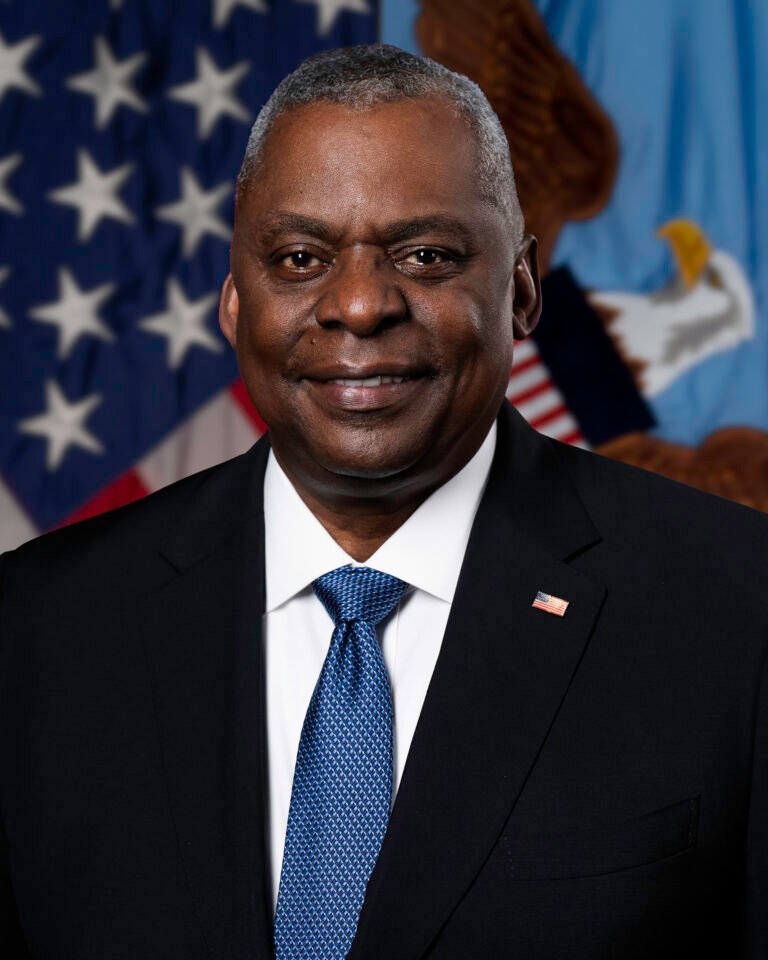Lloyd Austin, the first African American to serve as U.S. Secretary of Defense, is widely respected for his decades of military service, calm leadership style, and significant contributions to American defense policy. Born on August 8, 1953, in Mobile, Alabama, Austin rose through the ranks of the U.S. Army over a career spanning more than four decades, eventually achieving the rank of four-star general.
Austin graduated from the United States Military Academy at West Point in 1975 and later earned master’s degrees from both Auburn University and Webster University. His educational background also includes advanced training at the Army Command and General Staff College and the Army War College, equipping him with the strategic and operational skills necessary for high-level military leadership.
Throughout his military career, Lloyd Austin held several key commands. He served as the Vice Chief of Staff of the Army and later as the Commander of U.S. Forces in Iraq, where he played a critical role in managing the American military withdrawal in 2011. In 2013, he was appointed as the Commander of U.S. Central Command (CENTCOM), where he oversaw all U.S. military operations in the Middle East, including combat operations in Iraq, Syria, and Afghanistan. His tenure at CENTCOM concluded in 2016 when he retired from active duty.
Austin’s reputation for professionalism and operational excellence led to his historic nomination by President Joe Biden to serve as Secretary of Defense in 2021. Because he had not been retired from the military for the required seven years, Congress had to grant him a waiver—a rare step only previously granted to a few individuals. Upon confirmation, he became the first African American to lead the Department of Defense.
As Secretary of Defense, Lloyd Austin focused on strengthening global alliances, particularly with NATO and partners in the Indo-Pacific region. He also prioritized military modernization to address strategic competition with China and Russia. During the early years of the war in Ukraine, Austin was a key figure in organizing international military support. He led the Ukraine Defense Contact Group, a multinational forum that coordinated the delivery of weapons, ammunition, and training to Ukrainian forces. Under his leadership, the U.S. played a central role in shaping Ukraine’s defensive capabilities against Russian aggression.
Austin also oversaw the U.S. military withdrawal from Afghanistan in August 2021. Although the operation faced intense scrutiny and public debate, he took responsibility for the decisions made and highlighted the complexity of ending a 20-year conflict. Internally, he worked to address serious challenges within the military, including the need for diversity, the prevention of extremism in the ranks, and reforming the handling of sexual assault cases.
Known for his low-key and composed leadership style, Austin rarely sought media attention but earned respect from military personnel and international counterparts alike. While some critics said he should have communicated more publicly during major events, many acknowledged his steady hand during turbulent times.
In 2025, with the inauguration of President Donald Trump, Lloyd Austin left his position as Secretary of Defense and was succeeded by Pete Hegseth. His departure marked the end of an influential tenure that had spanned major global conflicts, a pandemic-era military, and heightened geopolitical tensions. Though no longer in office, Austin’s policies and approach to military diplomacy continue to shape U.S. defense strategy. His efforts to modernize the armed forces, support Ukraine, and rebuild global trust in American leadership have left a lasting mark on the Department of Defense. As a historic figure in both military and political spheres, Lloyd Austin’s leadership is often cited as a model of professional military service and principled governance.







